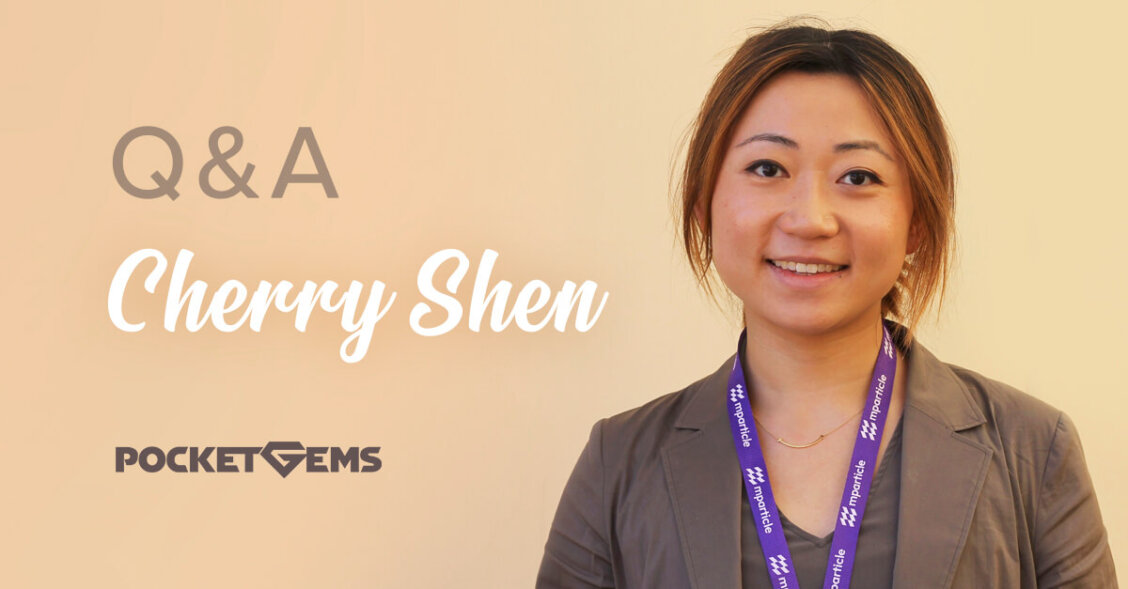
Q&A with Cherry Shen @Pocket Gems
Cherry Shen is an Associate Performance Marketing Manager at Pocket Gems, a mobile gaming company. Pocket Gems’ apps have been downloaded over 325 million times by players around the world. Cherry is tasked with driving growth for Episode, a role-playing game for iOS and Android. We caught up with Cherry to learn about her work and what it takes to become successful in mobile marketing.
What apps do you manage?
I work on Episode, an interactive storytelling platform that allows readers to choose their own path throughout thousands of stories. When Pocket Gems launched the app five years ago, we pioneered interactive storytelling on mobile. We now have 185 million users, 12 million plus registered story creators, and 100,000 stories for people to play.
How did you get started in mobile app marketing?
Even though I interned at an advertising agency in college, working in mobile marketing was never my plan. As Steve Jobs said, you can only connect the dots looking backwards. After graduating college, I joined a consulting firm, helping clients with product commercialization and marketing planning. Every two months, I would work on a new project with different people. I loved the challenge, however one thing was missing from the experience… I never got to see the real impact of my work. I suppose that’s the nature of consulting. Once my consulting work was over, I moved on to the next project.
Around that time, a recruiter from Pocket Gems contacted me. They found my background and skills relevant for a position in mobile user acquisition, so I was ultimately given the opportunity to join the company. Transitioning from consulting to mobile UA didn’t look like a straight path. But as it turned out, the work actually required very similar skills – the ability to analyze data, identify trends, and make quick decisions.
What qualities are most important to succeed in app marketing?
A good marketer is competitive and never settles for the status quo. Not all competitive people are good marketers, but a lot of the good marketers I know are very competitive. On a tactical level, being competitive translates into critical thinking about A/B testing, iterating, and improving campaigns to drive more growth.
A great marketer is also someone who can look at the data and connect it to fundamental human needs. While there’s a technical side to our work, such as crunching numbers and optimizing budgets, a more important aspect is understanding what users really want: security, connection, autonomy, purpose, etc.
What do you consider the number one biggest challenge in app marketing?
Transparency around data. Our industry is very fragmented, which makes it difficult to piece all that data together. This also means that “black box” algorithms can’t do everything, which is why people like me have a job.
What strategies work best to convert installs into engaged app users?
A simple yet effective strategy is to collaborate with other departments and hone in on the metrics that matter. For example, we track LTV and collaborate with our product and data science teams to predict how much certain users that we acquire are worth based on their retention rate. Understanding our performance goals and measuring meaningful metrics helps us acquire more engaged users.
In the past year, what is one tip you can share which made the biggest performance difference with UA or re-engagement of your app?
I can share two tips. First, “always-be-testing.” As I mentioned, marketers need to always be hungry for more and constantly think about the next growth opportunity. The second tip is less technical but equally important: learn how to influence people. In politics, this is called “lobbying.” As a marketer, you have to do some of that to make sure the right team and the right people are on board to help you solve problems. You can never achieve great things alone.
What is most top of mind for you in 2019?
My goal is to become less consumed by data and invest more into some marketing fundamentals, such as human psychology and motivation. I plan to read more books on psychology and to get to know our users better.
What advice can you offer to help marketers combat mobile ad fraud?
Find a good mediation partner that has advanced anti-fraud technology. Also, track your campaigns internally to identify the source of fraud, use data to prove it, and take the necessary measures with confidence.
What resources (blogs, websites, podcasts, conferences) can you recommend to other app marketers?
I rely on Google to learn about specific topics of interest and read Brain Pickings, a digest of different articles across art, philosophy, literature, and science. Many of my favorite books, including classic literature, don’t talk about marketing but help you understand people better.
As a feminist, I also listen to many podcasts about women entrepreneurs, including Second Life. Hearing other women talk about their successes and challenges in business opens you up to the idea that you can do whatever you set your mind to.
Read other insightful Q&As with leading mobile app marketers in the industry.